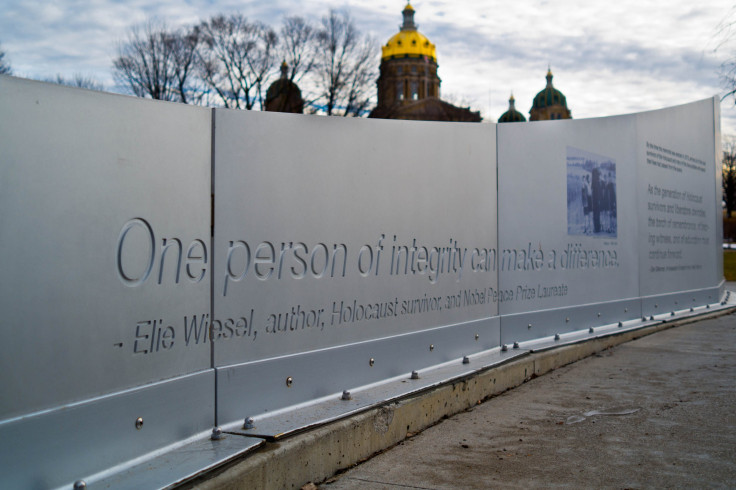Holocaust Survivors' Stories Are Helping Researchers Understand The Neural Basis Of Gratitude

Many emotions have been examined through the lens of neuroscience — which brain structures are responsible for our feelings? Why do some emotions activate certain brain areas that others don’t touch? One of the most understudied emotions is that of gratitude, a feeling of being thankful for someone else’s kindness.
Though gratitude is valued in many moral and religious philosophies, the neural correlates of the emotion have never been positively identified. So, researchers turned to an unexpected source for help mapping gratitude in the human brain: Holocaust survivors’ testimonies.
“In the midst of this awful tragedy, there were many acts of bravery and life-saving aid,” said study lead author Glenn Fox, a post-doctoral researcher at the Brain and Creativity Institute at the Brain and Creativity Institute at USC, in a press release. “With the Holocaust, we only typically associate the awful things. But when you listen to the survivors, you also hear stories of incredible virtue and gratitude for the help they received.”
The team tracked gratitude in 23 test subjects using a brain scan technique. In preparation for the experiment, the scientists immersed participants in the history of the Holocaust. They watched documentaries explaining the chronology of the Holocaust, including the rise of Nazism, persecution of minority groups, the Final Solution, and the final months leading up to Liberation.
Based on recordings of testimony from the USC Shoah Foundation, the researchers delivered second-person scenarios based on Holocaust survivors’ stories. They then posed these transcribed stories to the study subjects. An example of a scenario is: “A fellow prisoner risks their life to steal food from the SS quarters and bring it to you while you are sick in the bunks.” Other scenarios involved lower risk actions, and actions that were given at various degrees of difficulty and effort for the giver.
“They had an experience of gratitude as they imagined themselves in the situation,” Fox said.
Participants rated their level of gratitude in 50 such scenarios, and using an MRI scanner, researchers were able to map gratitude in the brain. Fox and his colleagues found that feelings of gratitude activated areas responsible for moral cognition, reward, fairness, subjective value judgments, and economic decision-making.
Prior studies on gratitude have suggested the feeling is beneficial for health, relationships, and wellbeing. In addition to shedding some light on gratitude’s brain mapping, the experiment caused subjects to report a much better understanding of the Holocaust after the experiment, along with greater empathy for survivors.
“When they gave testimony to USC Shoah Foundation, many Holocaust survivors told us that they found good reason to be grateful, whether it was because of a stranger offering a bit of food or a neighbor providing a place to hide,” said USC Shoah Foundation Executive Director Stephen Smith. “These small acts of generosity helped them hold on to their humanity. That Glenn has been able to use testimonies in his incredible research on gratitude shows why it is so important to preserve the voices of people who lived through these dark times.”
Fox plans on continuing his research by looking at the effects of gratitude on health.
Source: Fox G, Kaplan J, Damasio H, Damasio A. Neural Correlates Of Gratitude. Frontiers in Psychology. 2015.



























